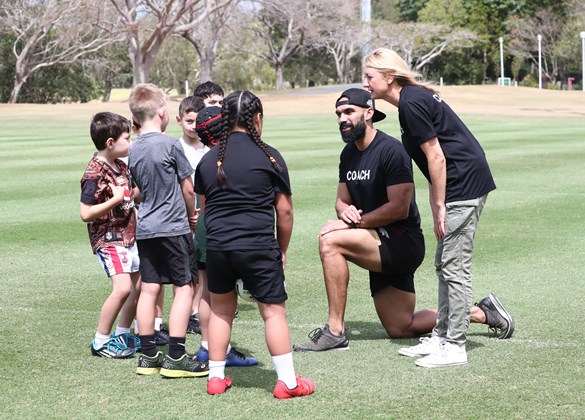
Coach - Make a Difference
Coaches Legal Responsibilities
Under the Australian Sports Commission’s National Coach Accreditation Scheme, coaches are required by law to undertake the following responsibilities:
1. PROVIDE A SAFE ENVIRONMENT Facilities and equipment must be safe for both users and others involved in the competition. Adverse weather conditions must also be taken into consideration during competition and practice.
2. ACTIVITIES MUST BE ADEQUATELY PLANNED Poor learning and even injury may be the result of unplanned practice sessions. Using appropriate teaching for new skills, especially potentially dangerous skills, is essential.
3. PLAYERS MUST BE EVALUATED FOR INJURY AND INCAPACITY Players with an injury or incapacity should not be expected to perform any harmful activity. No players should ever be forced to take part in an activity.
4. YOUNG PLAYERS SHOULD NOT BE MISMATCHED Young players should be matched not only according to age, but also height, weight and maturity. Skill levels and experience should be considered.
5. SAFE AND PROPER EQUIPMENT SHOULD BE PROVIDED Existing codes and standards for equipment should be met and all equipment should be kept in good order so that it is safe to use at all times.
6. PLAYERS MUST BE WARNED OF THE INHERENT RISK OF THE SPORT The inherent risks of any sport can only be legally accepted by the participants if they know, understand and appreciate those risks.
7. ACTIVITIES MUST BE CLOSELY SUPERVISED Adequate supervision is necessary to ensure the practice environment is safe.
8. COACHES SHOULD KNOW FIRST AID Coaches should have a knowledge of current basic emergency procedures. Coaches should know STOP (Stop, Talk. Observe, Prevent further injury) and RICER (Rest, Ice, Compression, Elevation, and Referral) procedures for managing injuries. Coaches should have a written emergency plan and ensure that medical assistance is available. At the very least, coaches should ensure that nothing is done which could aggravate any injury. Coaches must also be aware of the NRL Concussion policy.
9. DEVELOP CLEAR, WRITTEN RULES FOR TRAINING AND GENERAL CONDUCT Injuries are sometimes the result of fooling around in the change rooms and training venues. Clear written rules should be developed for general conduct and behavior.
10. COACHES SHOULD KEEP ACCURATE RECORDS Adequate records are useful to planning and are essential is all cases of injury. Record cards should be kept on all players including relevant general and medical information and progress report. Accident reports should be made as soon as possible after any injury occurs.
Negligence, should it occur, is defined as the failure by a coach to perform a legally-owed duty that is considered reasonable and prudent in the circumstance. A breach of the coach’s required standard of care can occur through an error or an omission
Coach Documents & Responsibilities
Not what you were looking for?
Not what you were looking for?
Find out more about our Coaching opportunities and resources.




